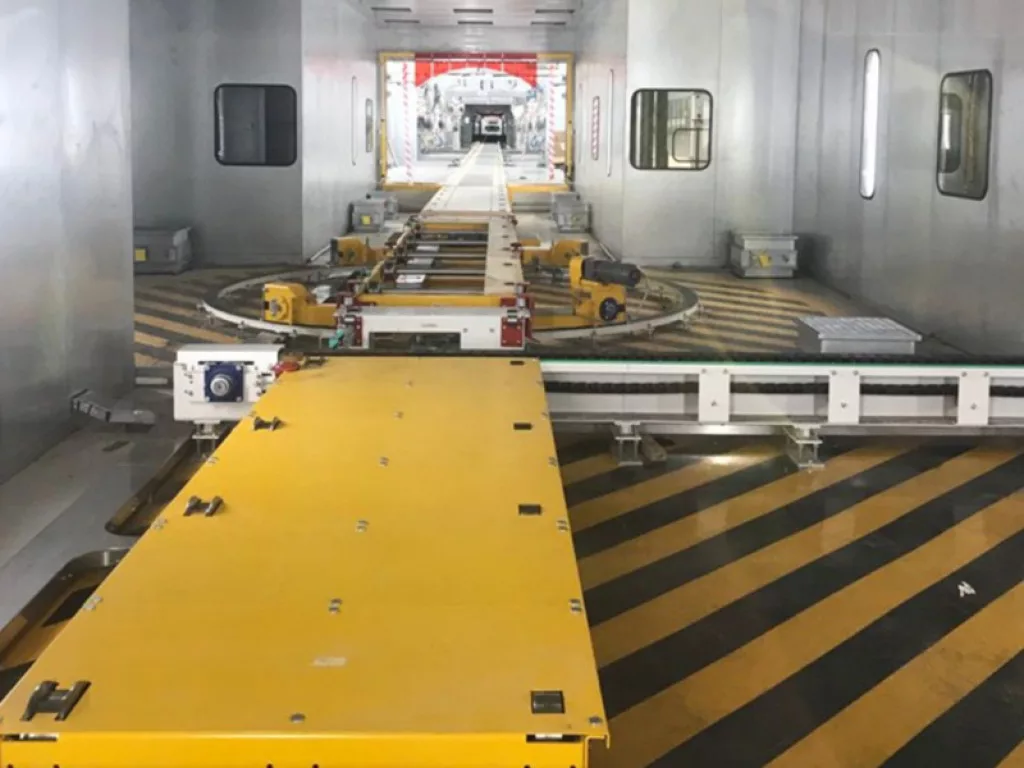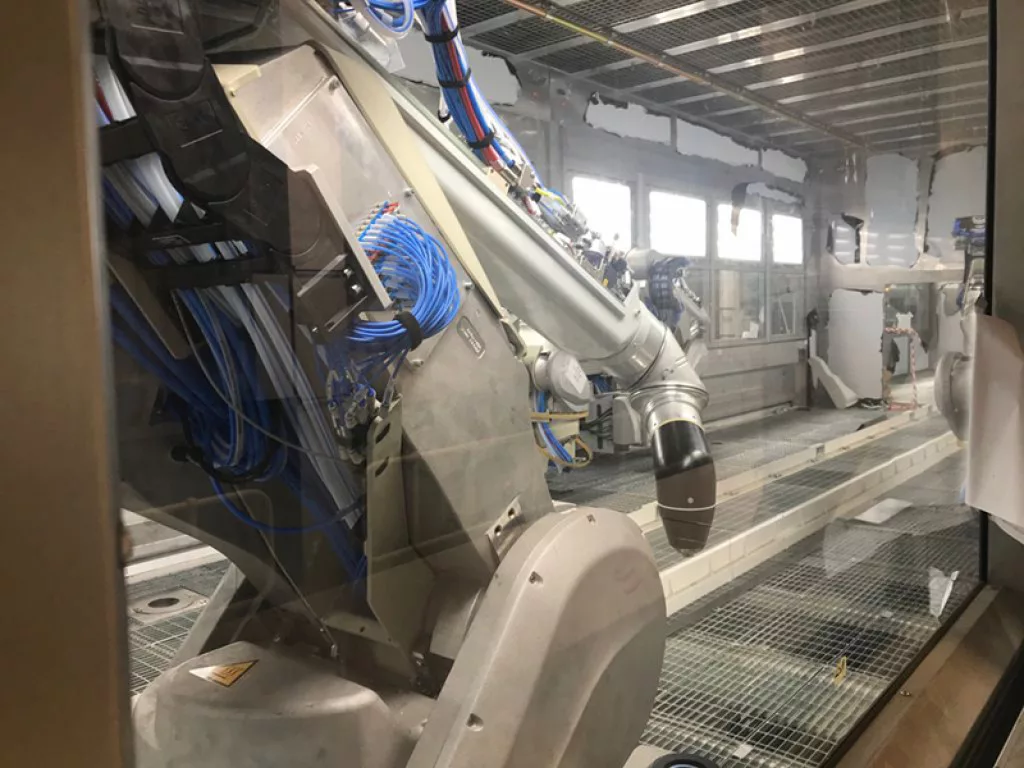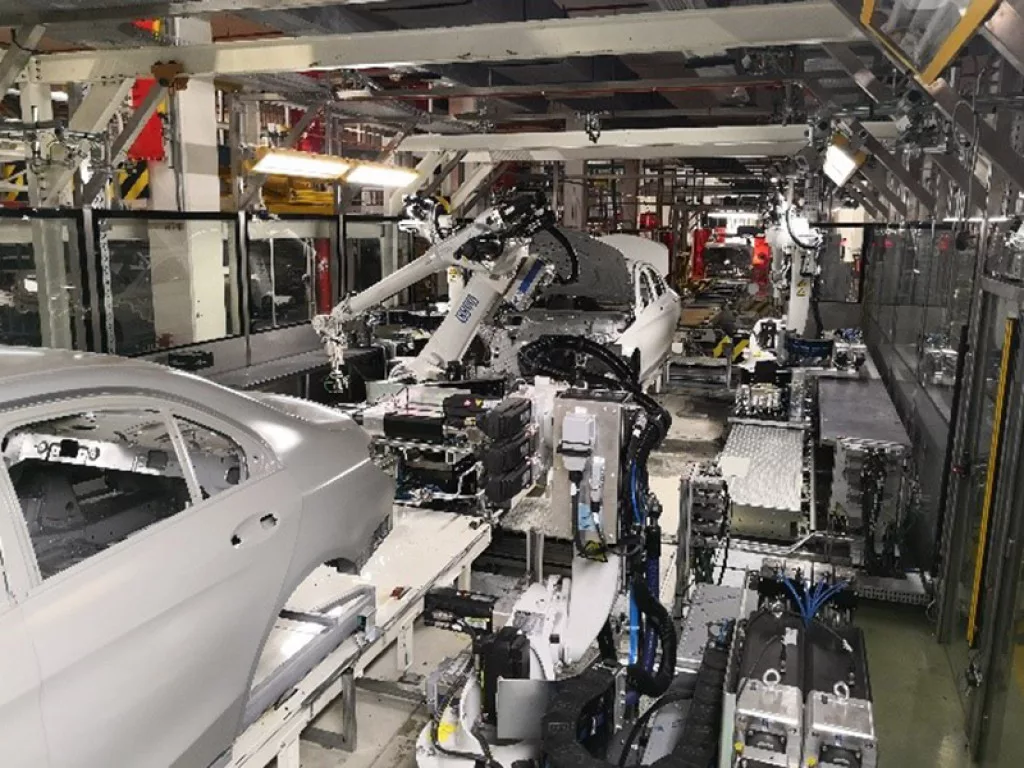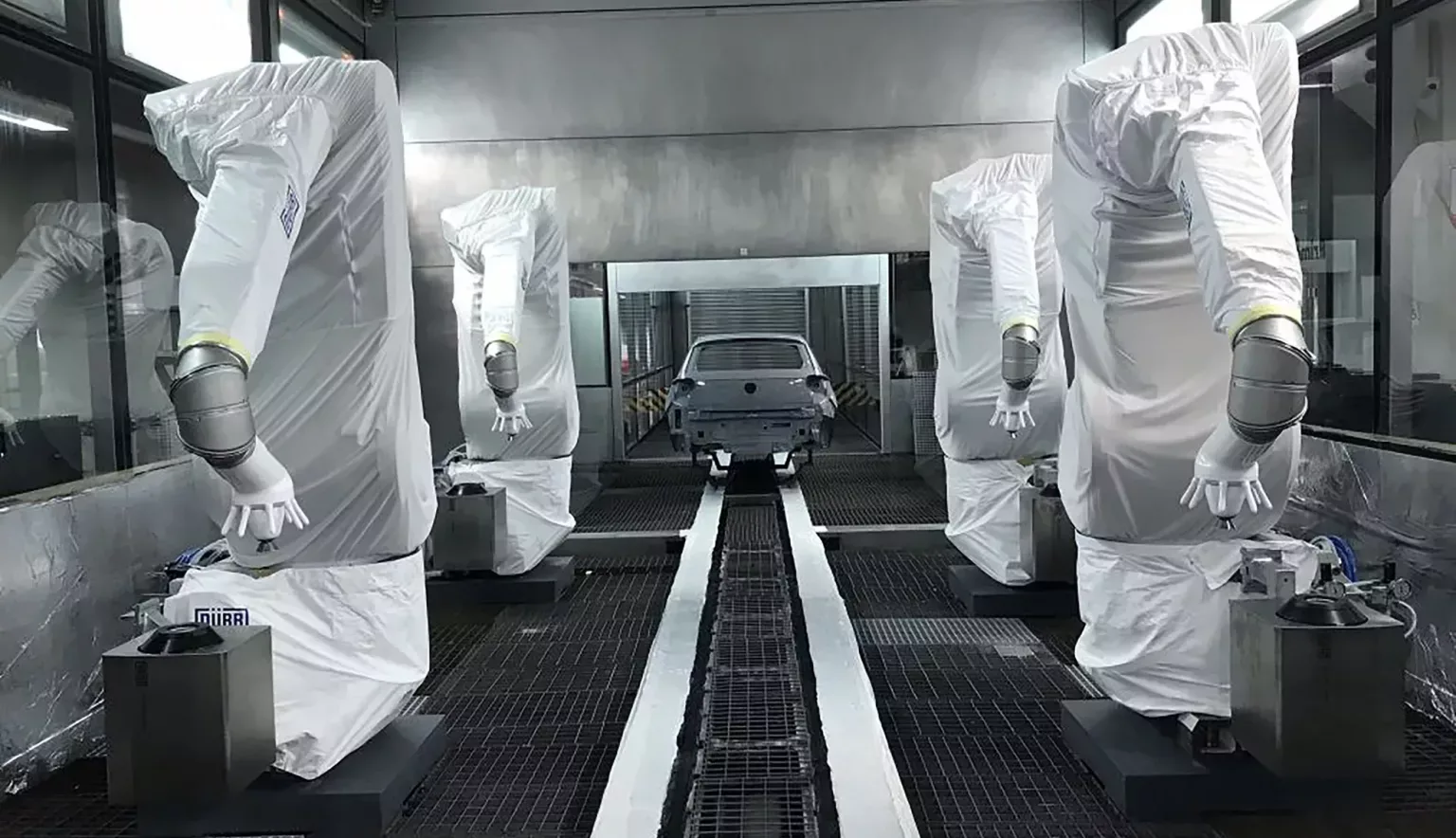On the back of a disruptive 2020, Michael Broek, Managing Director of Dürr Africa, discusses the current state of manufacturing as a result of COVID-19 and his company’s day-to-day operations.
INTRODUCTION
“Despite the general downturn and COVID-19 pandemic, manufacturing is still very dynamic,” says Michael Broek, Managing Director of Dürr Africa.
Indeed, in March 2020 as the COVID-19 pandemic tightened its grip on the world, Dürr Africa completely shut down its manufacturing operations.
“Our production went down to zero,” he admits. “Fortunately, we had the infrastructure in place to make that transition to home working smooth. All other aspects of the business, such as sales and finance carried on, it was just production that grounded to a halt.”
As restrictions began to lift in May 2020, Broek affirms that Dürr Africa were a bit stricter than what the government had ordered.
“We limited access for our employees within certain areas of the workplace to limit the consequence of an exposure to infections at our offices,” he recalls. “We also made sure we issued the proper PPE such as facemasks and hand sanitizers not just to our staff, but also to their families. These can be expensive commodities if you have extended family and a limited budget, and we wanted to ensure that the family units were safe too.”
“With a workforce of over 150 people, we ultimately only had two COVID cases during the whole COVID period. It took a lot of time and effort to get this right and it wasn’t always easy, but it was worth it in the long-term.”
Broek has led operations at the organisation for more than two decades and has witnessed how operations have changed over the years. His journey to joining Dürr was an interesting one. In 2000, having been working for a firm involved in paint automation, Broek approached Dürr in Germany and offered to reopen the company in South Africa to support the local industry.
“At the time, Dürr had a number of contracts to install facilities that were handled directly from Germany,” he recounts.
“Dürr Africa was re-established mainly as a service location to provide local service on the relatively complex technology installed at our customer’s plants. So, working first from my home office, I hired some engineering staff and slowly built up the company over the years.”
Dürr works closely with local automotive and industrial firms. The company has a close and long-lasting relationship with a number of the most influential names in the local automotive sector, including BMW, Ford, Mercedes-Benz and Volkswagen. Dürr provides a comprehensive range of products for all painting, final assembly and air pollution control applications, complemented by smart automatic and supervisory control systems.
Upon joining, Broek’s initial focus was the reciprocator-based paint application machines. This was shortly followed by the final assembly products such as automated wheel alignment machines, break testers, liquid media filling machines for aircons, brakes and power steering.
“We eventually started to manufacture standalone machines in South Africa and followed this up with the local manufacture of material supply systems for paint and sealer, all kinds of conveyor systems, spray booths and other enclosures, as well as ovens and pre-treatment facilities,” he says.
“Along the way we also represented our balancing machine division (under the brand name Schenck) that provides balancing machines ranging from balancing small motors all the way to large vacuum balancing machines for the turbines at most South of Africa’s power stations.
“We also support our environment technology division that produces facilities for clean air systems. One of the latest additions to our family is the woodworking machinery business under the brand name Homag. Homag designs and builds machinery that can produce for example complete flat-packed kitchen cabinet units. The 3D model that you designed with your local kitchen company is fed into the MES system of a cabinet making company and then creates production orders that coordinate the various Homag production machines so that the various boards are cut, drilled, edged, painted and packed – ready for installation.”


Broek acknowledges the importance of staff retention and believes that in today’s environment, wages are not the only factor to consider for employees.
“Money is not the only driver for job satisfaction — quality of life and time off are important factors to consider,” says Broek. “We try and create a really pleasant work environment, and hope that our staff appreciates this even during the hot project phases when much overtime needs to be worked, often away from home. Individual recognition is a more difficult topic as we often work in teams. But we find ways to reward the outstanding candidates.
“The dedication of a staff member to a particular company is not what it used to be. Some people are tending to look at other opportunities after only a few years at a company whereas in the past, people tended to stay with one company much longer, sometimes for decades. It’s up to us to find ways to keep employees challenged and engaged.”
Dürr Africa has worked on a number of significant projects over the years, such as the Marcopolo Bus Plant and Coega Plastics Paint Shops to name but two. However, Broek is keen to stress that he isn’t content to rest on his laurels.
“We continue to work very hard on the sales side,” says Broek. “In our world, sometimes you get a really big and important order, then there are a few minutes of elation when one realises that the hard work had paid off, but then the reality sets in and one starts facing the stress of execution, tight timelines – and the mentality shifts. We know there is a lot of competition.
“In the past as we built up our installed base in South Africa, we only had one or two main projects per year and we could focus all our attention on them. We have to multitask a lot more now that we need to execute many projects in parallel, with moving timelines due to COVID-19 and other issues, resource management becomes one of the more important tasks to coordinate efficiently. My current recollection of past projects isn’t great because I’m mainly focusing on the now and what we have to execute next.”
Broek points to the paint shop for a Brazilian bus manufacturer from a project as being one that sticks in his memory as being quite influential in the development of Dürr Africa.
“The bus plant project wasn’t even particularly high in value,” he remembers. “But it was the start of building an entire plant locally in South Africa. The customer entered our market and wanted to build and paint their buses in South Africa. They approached us for an initial concept, and we formed a good working relationship with their management. So, they then decided to work exclusively with us. At the time this was a large project for us and because it was completely engineered in South Africa it made it very special. The timeframes were great, everything was delivered to plan, and the bus plant is still in operation today.
“As of the beginning of last year, we were entrusted with building a new paint shop for a premium car manufacturer. The installation phase was particularly challenging during COVID-19 as the pandemic messed up many delivery plans. The site travel logistics had to be managed carefully too, as many overseas contractors were involved in the assembly and management on site.
“We are currently in the commissioning phase and when it comes online late this year it will be the most sophisticated paint shop in South Africa. We are installing our third generation of painting robots as well as other environmentally friendly technology to reduce their carbon footprint.”
Broek has witnessed how the market within South Africa has transformed over the years and admires his company’s competitive advantage.

“South Africa has been isolated for many years during the eighties and early nineties,” he says. “We have a lot of smaller competitors that are good at what they do. But they often struggle to project manage a more complex project. We also have the danger that by involving certain subcontractors and make them familiar with our technology and concepts, we could create instant competition. Our strategy has been in many areas to insource complex and technologically challenging topics and to outsource manufacturing of smaller and less challenging portions of a project.
“This is because once we give a supplier all the details to get something built, we essentially would be sharing our technology with them to a level where if they have enough confidence, they could become a major rival. We operate in a different way to other companies, and this makes us more competitive because of the important value-add we have in-house rather than marking up someone else’s product.”
Broek understands the value of partnerships. Despite having reduced its supply chain to primarily raw materials, he is well aware of the value of material and equipment suppliers, as well as installation contractors.
“We have strong relationships with them because it’s important they deliver that equipment in a timely and cost-effective way, and to support us at short notice occasionally during emergencies” he explains. “When it comes to involving companies in our projects, we also have suppliers that will do installations for us at times when our local workforce is already committed to other projects. This means that we don’t have to burden ourselves with too much manpower that we only need in peak times.”
However, Broek is cautious to be too trustful and explains that it is important to work diligently with partners to ensure deadlines are met.
“In South Africa, we choose our partners carefully. We are only as good as the weakest link in our supply chain. When we use sub suppliers, we must watch them closely with respect to quality and deadlines because unfortunately some companies often overpromise and underdeliver,” explains Broek.
“Even if we have a close relationship with a supplier, we have to follow them every step of the way to ensure all the milestones are met in time. If just one cog doesn’t work correctly on a tight deadline, it will damage our reputation – instead of our sub suppliers. The management of suppliers is critical. We need relationships of trust that even if they do have a problem, they need to tell us early so we can support them in the correct way. But, building that trust with your supply base takes time.”
With the future in mind, Broek is looking forward to expanding and developing the company’s products to ensure they are suitable for the local market.
“We take on new product portfolios regularly,” he says. “Every year, we pick up one or two and develop them further before selling to the local market.
“I believe that now is the time to consolidate. The key is to not grow too quickly, look for a new product line, understand the technology, build up service capability and roll it out on our local customer base. And then ensure that the initial market introduction of a new product runs as smoothly as possible to ensure our reputation is maintained.”























